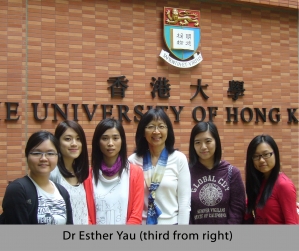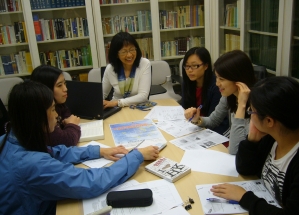Migration And Memory
Migration And Memory
Migration And Memory
Globalisation has accelerated the movement of people across borders, from one land and culture to another, prompting countless stories of alienation and adaptation as people adjust to their new home. Hong Kong is a prime example of this phenomenon and it has inspired Dr Esther Yau to help the people behind these stories find a voice.

Dr Yau comes to the subject of migration from both personal and professional perspectives. She’s a migrant herself, having been raised in Hong Kong, spent 24 years in Los Angeles and returned to Hong Kong in 2008. She also takes a keen interest in films about migration in her role as Associate Professor in the Department of Comparative Literature.
“Hong Kong is a city with several generations of migrants who have come here for very different reasons, and recently there have been controversies,” she said.
“Given my discipline in film and cultural studies, I thought I could make a contribution by encouraging people to tell their personal stories of migration and turn the invisible stories into something visible.”
She launched the “Migration Memory and Creative Digital Narrative” project earlier this year to achieve just that.
The project, funded by the Knowledge Exchange Fund, operates through workshops that help migrants access their memories and create something from them, such as a photograph or a written passage. The results will be posted on a website that the participants will be encouraged to share with their friends and family.
“We are asking them to revisit the past and make sense of their migration stories. What was that process of coming to Hong Kong about? What does it mean to have left grandparents behind? What happens when you go back to the village 10 years later and find modernisation has removed any signs of your childhood memories?
Migration And Memory
“And what does it mean to get to know the city space of Hong Kong – the streets, shops, parks, familiar places? How have people responded to you? Have you found your values have changed?
“All kinds of things come with this kind of migration memory. It’s not necessarily about just the process of moving, but the before and after and what sense you make out of it, how you inhabit this new place.”
The workshops are being held this spring at Tai Po and Tung Chung, which both have sizeable migrant populations. The Neighbourhood Advice-Action Council is providing a meeting place and other support, and trained HKU undergraduates will be assisting in the workshops.
While the main goal is to draw out migrant stories and help people to express themselves, Dr Yau hopes the project will help to provide a forum for young talent in the community. She also hopes the project can expand to other districts.
“Everyone in Hong Kong should be given a chance if they are interested to participate in this project. We can’t provide statistics on the benefits, but I think it will expand and enrich the cultural space of Hong Kong,” she said.

Dr. Yau, working with part-time research assistants Florence Lo and Shadow Tam, has trained seven HKU student volunteers, some of whom are included in the above photograph. They are: Jenny CN Lee, Jenny Lee, Vanessa Ma, Ellen So, Alison Tse, Ivy Wong, and Nichola Wong. The volunteers will assist with implementing components of the KE workshops held in two community centres and a school in Tung Chung and Tai Po.
Page

